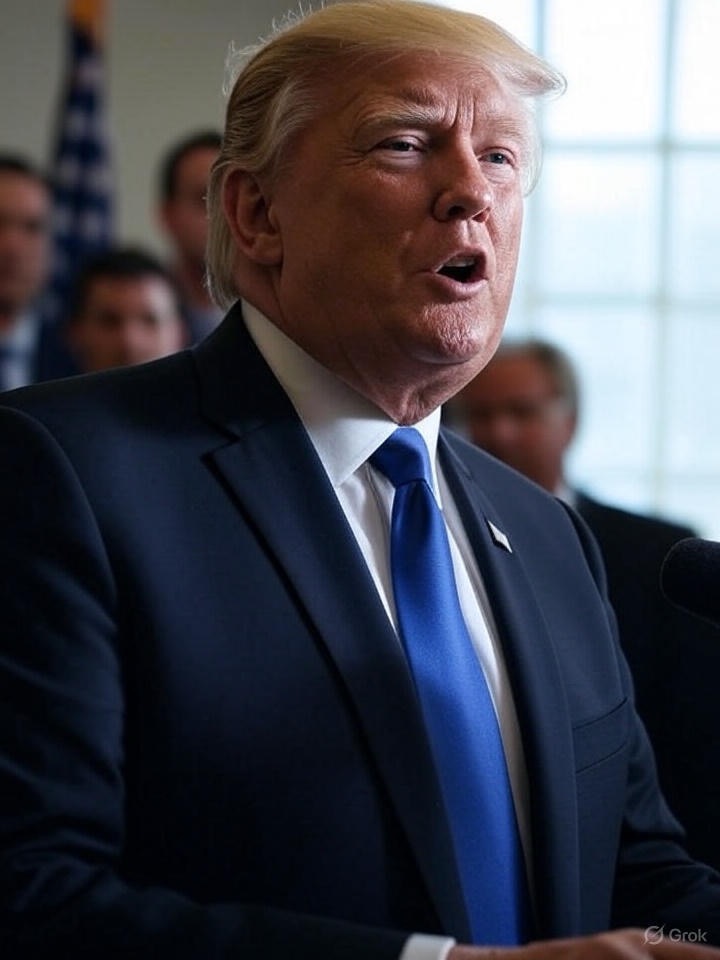
Washington, D.C. – U.S. President Donald Trump has declared that a 30% tariff will be imposed on all goods imported from the European Union (EU) and Mexico starting August 1, 2025, escalating trade tensions with two of America’s largest trading partners. The announcement, made via letters posted on Trump’s Truth Social platform, has sparked concerns about potential disruptions to global supply chains and rising costs for consumers.
Tariff Details and Rationale
In his letter to European Commission President Ursula von der Leyen, Trump cited the U.S. trade deficit with the EU as a national security concern, criticizing the bloc’s tariff and non-tariff policies. “We have had years to discuss our trading relationship with the European Union, and we have concluded we must move away from these long-term, large, and persistent trade deficits,” Trump wrote, adding that the relationship has been “far from reciprocal.”
For Mexico, Trump acknowledged efforts to curb undocumented migration and fentanyl smuggling but claimed they were insufficient, stating, “Mexico has been helping me secure the border, BUT, what Mexico has done, is not enough.” He accused Mexico of failing to prevent North America from becoming a “narco-trafficking playground.”
The tariffs will apply to a wide range of goods, potentially increasing prices for American consumers on products like French cheese, German electronics, Mexican vehicles, and agricultural products such as fruits and beer. Trump emphasized that companies from the EU or Mexico could avoid the tariffs by building or manufacturing products in the U.S.
Reactions from EU and Mexico
European Commission President Ursula von der Leyen swiftly criticized the move, warning that the tariffs would “disrupt essential transatlantic supply chains, to the detriment of businesses, consumers, and patients on both sides of the Atlantic.” She reiterated the EU’s commitment to negotiations, stating, “We remain ready to continue working towards an agreement by August 1,” but also signaled preparedness for “proportionate countermeasures” if necessary.
Mexican officials rejected the tariffs as “unfair” and expressed willingness to continue dialogue to avoid a trade conflict. The tariffs could replace existing 25% levies on non-USMCA-compliant goods from Mexico, potentially affecting the U.S.-Mexico-Canada Agreement (USMCA).
Broader Trade Strategy
The announcement follows Trump’s recent tariff actions against over 20 countries, including a 35% tariff on Canada and a 50% tariff on copper imports. Analysts suggest Trump’s strategy is to pressure trading partners into concessions, with some describing it as an “escalate to de-escalate” tactic. However, the 30% rate for the EU is higher than the 20% levy announced in April, indicating a tougher stance.
Economic Implications
The tariffs could have significant consequences for global trade and the U.S. economy. Experts warn that higher import costs may fuel inflation, impacting American consumers and businesses reliant on EU and Mexican goods. “If this new, higher tariff level sticks, it has significant implications for the trade relationship with the EU and the US economy,” said Mark Malek, Chief Investment Officer at Siebert Financial.
The EU, the U.S.’s largest trading partner with $605 billion in imports, and Mexico, a key supplier of vehicles and agricultural products, are bracing for potential economic fallout. Germany has urged a swift resolution to protect its industries, while France advocates for resisting one-sided deals.
What’s Next?
With less than three weeks until the August 1 deadline, both the EU and Mexico are pushing for negotiations to avert the tariffs. However, Trump has warned that any retaliatory tariffs from either party would result in even higher U.S. tariffs, stating, “Whatever the number you choose to raise them by, will be added on to the 30% that we charge.”
As the deadline approaches, the world watches closely to see if a trade deal can be reached or if this marks the start of a broader trade war. Stay updated on this developing story at GlobalGorkha.com.





